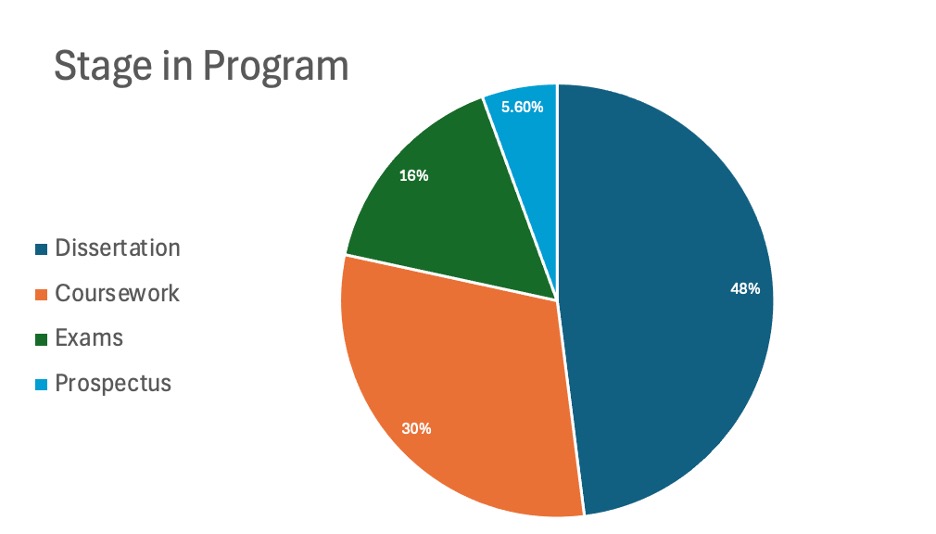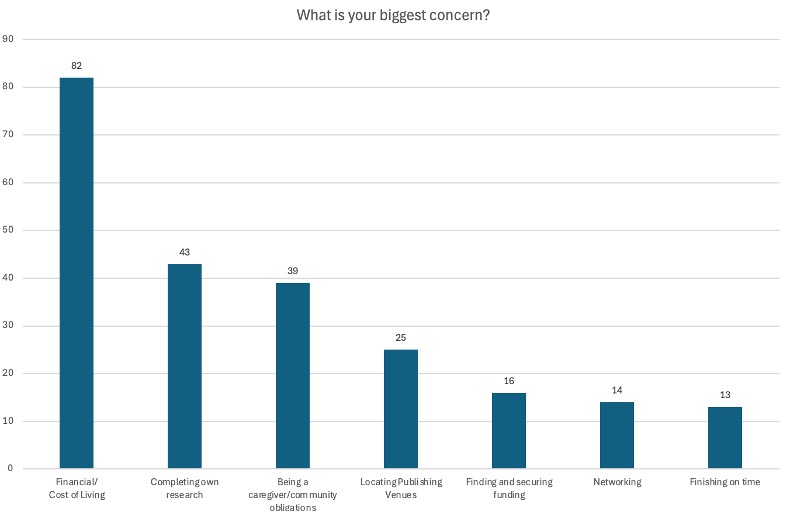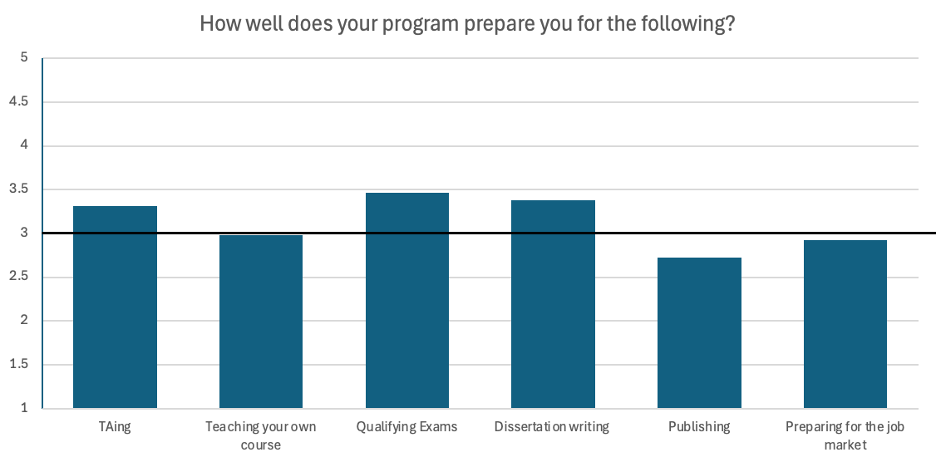What Do Faculty Need to Know?
A note about this series:
Students now comprise the highest percentage of the American Academy of Religion’s members.
In June 2024, the American Academy of Religion’s Graduate Student Committee conducted a survey of student members to collect information about their experiences and struggles. The results, presented in a webinAAR on July 31, highlight significant concerns about the current state of graduate education. This open letter series is an extension of that presentation and aims to share the survey data with faculty members and administrators, offer insights into the challenges faced by graduate students, and provide practical steps for offering support. Graduate students are both the labor of our present and the future of our field - faculty must take the time to understand their struggles and support them in the ways they ask. This series, and the conversations we hope it starts, is an attempt to open a dialogue about how faculty can and should play a crucial role in the success of graduate students and to bring awareness to the unique challenges faced by so many current graduate students.
The survey conducted by AAR's Graduate Student Committee in June 2024 aimed to understand graduate students’ experiences in their respective programs and how the Graduate Student Committee and the American Academy of Religion could best support their journey. Respondents were asked about how well their program prepared them for being a teaching assistant, teaching their own course, qualifying exams, dissertation writing, and the job market. Additionally, the survey inquired where graduate students desired more mentorship from senior scholars and about their greatest non-academic concern. It concluded with open-ended questions about how their personal identity affected their program and what they wished faculty knew about graduate students today. Responses from the survey inform this series in an effort to amplify concerns, transforming whispers in the hallway into clear voices on center stage.
The survey results capture the voices of graduate students globally, shining a spotlight on issues that demand immediate action. From the precarious academic job market to the pressure of balancing life and studies, students navigate a complex and often overwhelming landscape. The survey was sent to over 1,600 students, with 138 graduate students responding. Their candid responses offer a window into the realities of their academic journeys and personal lives. Below is a snapshot of the survey data, offering key insights into the challenges they face.
Graduate students from every stage in their programs completed the survey, with almost half of the responses coming from students who identified as being in the Dissertation stage of their program. Students in Coursework made up 30% of respondents, students in the Exam stage accounted for 16%, and students in the Prospectus stage made up just under 6%.

When asked about their primary concerns, students overwhelmingly cited financial challenges and rising living costs as their top issues. Stipends are failing to keep up with the cost of living, placing students in precarious situations of taking on multiple part-time or full-time jobs or facing the crushing debt of student loans to sustain themselves. Additional significant concerns included the pressure to complete their dissertation research and balancing responsibilities as caregivers within their families and communities. The stress of these concerns challenges graduate students’ ability to dedicate the expected and required attention needed to complete these rigorous programs well. When combined with the anxiety of the ever-diminishing academic job market, graduate students face nearly impossible odds and outcomes. To be clear, graduate students are not asking for less rigor or diminished expectations. They are asking for faculty and administration to be acutely aware of these challenges and engage in solutions that provide favorable outcomes for all. This could include increased stipends, flexible deadlines, and reimagining the production of scholarship.

The survey also asked students to rate how well they felt their programs prepared them in a variety of areas, including acting or being assigned as a Teaching Assistant (TA), teaching their own course, qualifying exams, dissertation writing, publishing, and preparing for the job market. With 1 being “Not well prepared” and 5 being “very well prepared,” the average for each category was around a 3. Teaching their own course, publishing, and preparing for the job market all averaged less than 3, with publishing being the lowest-rated area of interest.

In addition to these questions, the survey collected open-ended responses about what graduate students wished faculty understood. Collectively, the responses revealed six key themes:
- The Reality of the Job Market
- Balancing Life and Academia
- Financial Insecurity
- A Need for Mentorship and Relationships
- Rethinking Coursework
- Recognizing Diversity
In subsequent open letters, we will explore these topics in depth. Some may wonder why these topics must be addressed, as they have been consistent experiences in graduate programs for decades. That is the problem. We cannot continue to sweep these issues under the rug. The time has come to name these challenges and attend to them in ways that promote wellness, not only for the sake of graduate students but also for the guild and our scholarship. Graduate students are the scholars of tomorrow and deserve the best we have to offer as they shape the future of our work. Graduate students are now sending a clear message: they need more than just academic guidance—they need faculty and departments who recognize and support them as whole individuals. By addressing these crucial themes, faculty can create a more equitable, supportive, and dynamic academic environment that empowers students to thrive. This open letter series will explore each of these themes in detail, offering actionable insights and practical strategies for faculty and academic departments to better support their graduate students. Together, we can help shape the future of academia to be more inclusive, innovative, and responsive to the needs of all students.






